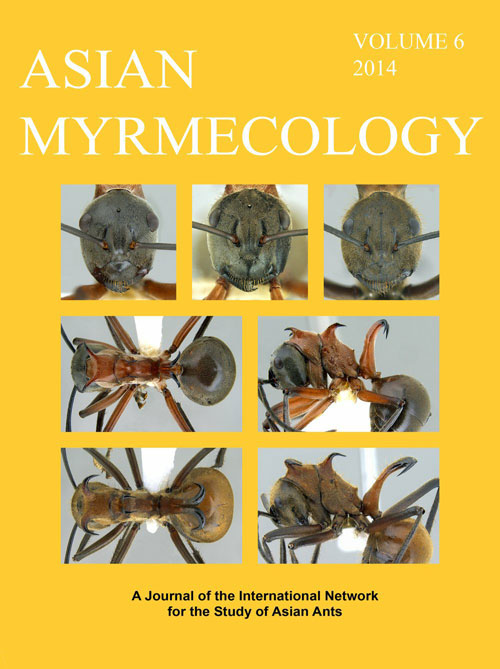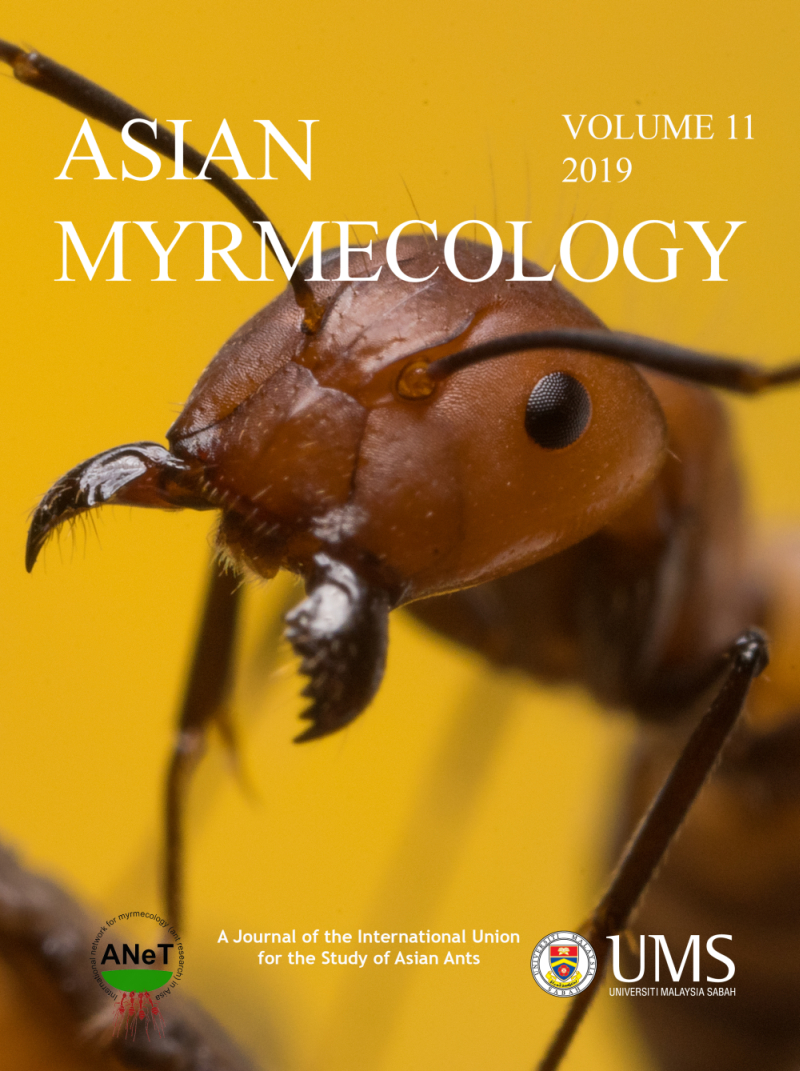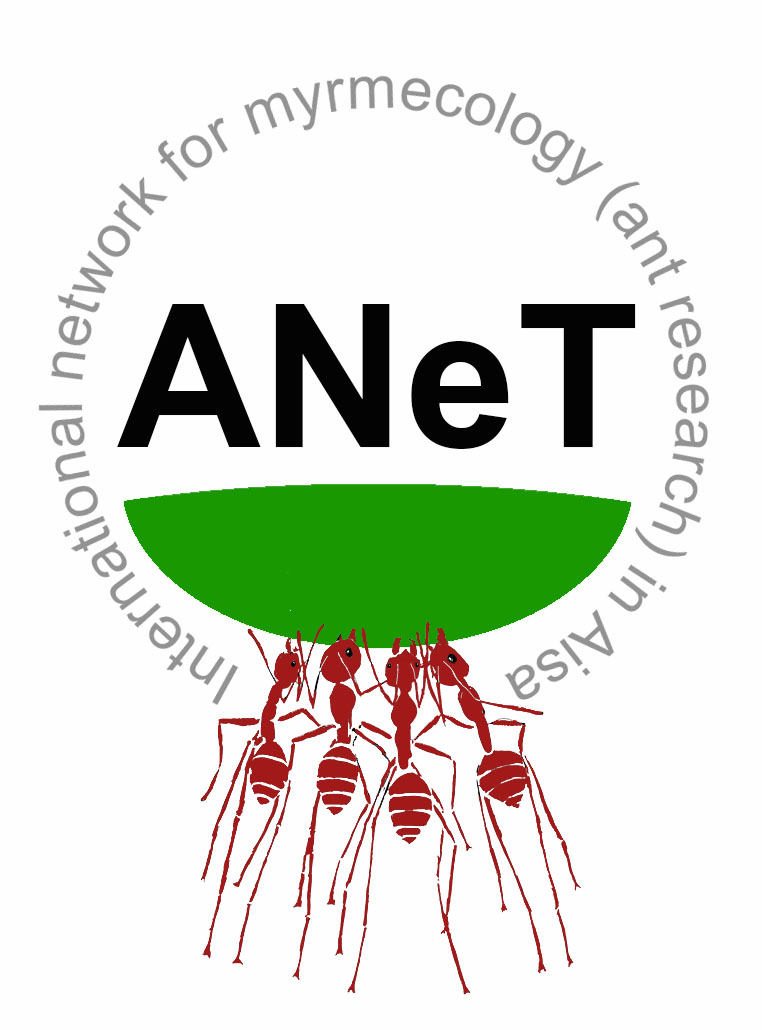ASIAN
MYRMECOLOGY
Image: François Brassard
Ecology and Distribution
Asian Myrmecology, Volume 6, pages 83-90, published June 2014
DOI: 10.20362/am.006006
Nest density of Aneuretus simoni Emery (Sri Lankan Relict Ant) and Stereomyrmex horni Emery in three forest regions in western and southern Sri Lanka
R. K. S. DIAS* & H. P. G. R. C. RUCHIRANI
Abstract:
Aneuretus simoni Emery and Stereomyrmex horni Emery are two endemic and rare ant species in Lanka. The presence or absence and nest density of these species was surveyed to find out if they inhabit locations outside the previously recorded habitats, and to verify their conservation status. Colonies were surveyed by thorough inspection, breaking decaying pieces of wood and the removal of leaf litter in a forest in Western Province (Kalugala Proposed Forest Reserve – KPFR) and two forests in Southern Province (Kuluna Kanda Proposed Forest Reserve – KKPFR and Wilpita “Aranya Kele” in Oliyagan Forest Reserve – WFR). Aneuretus simoni nests were recorded in 7.5% of quadrats, with a nest density of 0.30 nests m−2 at the site of KPFR, whereas this species was more common at KKPFR , occurring in 23.3% of samples with a nest density of 0.93 nests m−2. At WFR site, A. simoni nests were found in 6.7% of samples at a nest density of 0.27 nests m−2. Stereomyrmex horni Emery was found in 15% of quadrats at 0.6 nests m−2 at KPFR and 3% of quadrats at 0.13 nests m−2 at WFR. At KKPFR, S. horni was not encountered. The discovery of the presence of A. simoni in the three forests, S. horni in two of the forests, and the co-occurrence of the two endemic species in two habitats, are new findings of this survey. Nest density of A. simoni at the current sites was higher than those recorded from Gilimale Forest Reserve and Kirikanda forest, whereas this is the first record of nest density of S. horni in Sri Lanka. Our findings suggest that A. simoni is much more common than previously reported and that its present conservation status as a Critically Endangered species should be re-assessed.
Keywords:
nest density, frequency of nest occurrence, Kalugala Proposed Forest Reserve, Kulunakanda Proposed Forest Reserve, Wilpita “Aranya Kele”
Get PDF (503K):
Department of Zoology, University of Kelaniya, Sri Lanka
*Corresponding author: rksdias@kln.ac.lk



